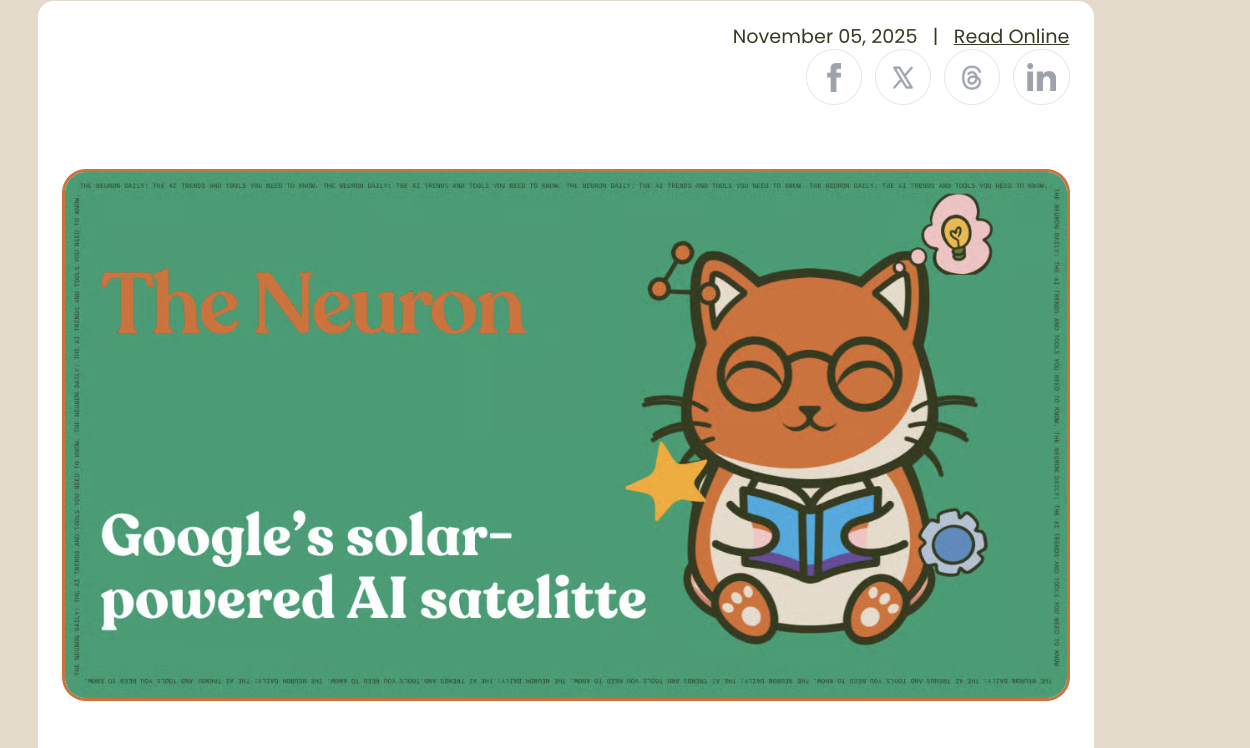Here's the TL;DR: In a major milestone, OpenAI just announced it has rocketed past 1 million paying business customers. The enterprise world is clearly buying what OpenAI is selling, from startups all the way to giants like Morgan Stanley, T-Mobile, and Target.
This explosive growth isn't happening in a vacuum. It's being infused and empowered by the 800 million people who already use ChatGPT every week. When employees already know and love a tool, getting company-wide adoption is way easier—pilots are shorter, and there's less friction.
Here’s a look at the stunning numbers:
- 7 million+ total seats for ChatGPT for Work, a 40% jump in just two months.
- ChatGPT Enterprise seats have grown 9x in the last year.
- Codex, its code-generation model, has seen usage 10x since August.
To back up this growth, OpenAI also dropped a wave of new business-focused tools. The most interesting is Company Knowledge, which lets a special version of GPT-5 securely connect to your internal tools like Slack, Google Drive, and SharePoint to answer questions and analyze data with citations. Think of it as a super-intern who has already read every document your company has ever produced.
Companies are already seeing real returns from putting OpenAI to work. According to an October 2025 Wharton study, 75% of enterprises are getting a positive ROI from their AI investments.
- Indeed boosted job applications by 20% using OpenAI's API.
- Cisco is cutting code review times in half with Codex.
- Lowe’s armed employees in over 1,700 stores with an AI expert-in-their-pocket.
What to do: OpenAI is aggressively positioning itself as the foundational "operating system for work." For founders and developers, this is a signal to stop thinking of OpenAI as just an API provider and start seeing it as a platform, like iOS or Windows. Building apps that plug directly into ChatGPT (like Canva and Shopify are doing) could be a massive distribution channel.
For professionals, the takeaway is clear: start cataloging how your team is already using these tools informally, as that'll become your roadmap for identifying high-ROI projects that can be deployed quickly and officially.
Below, we dive into OpenAI's findings more in depth.
How OpenAI Became the Fastest-Growing Business Platform in History
OpenAI just dropped a bombshell statistic that redefines the scale of AI adoption in the corporate world: it has surpassed 1 million paying business customers, making it the fastest-growing business platform in history. This milestone isn't just a vanity metric; it’s a powerful signal that the AI revolution, which began as a consumer phenomenon, has officially breached the corporate firewall and is now reshaping how work gets done from the inside out.
The roster of clients is a who's who of global industry leaders, including Morgan Stanley, Booking.com, T-Mobile, and Target. This rapid enterprise uptake is a direct result of what OpenAI calls the "consumer-led" growth model. With over 800 million weekly users, ChatGPT has become a household name. Employees are bringing the tool to work, demonstrating its value in their daily tasks, and effectively creating a bottom-up demand that IT and business leaders can no longer ignore. This pre-existing familiarity dramatically shortens pilot programs and smooths out the friction typically associated with rolling out new enterprise software.
The numbers paint a vivid picture of this acceleration. ChatGPT for Work now boasts over 7 million seats, a staggering 40% increase in just the last two months. More impressively, the premium ChatGPT Enterprise tier has seen its seat count multiply by a factor of nine year-over-year.
A New Suite of Tools
To capitalize on this momentum, OpenAI has launched a suite of new tools designed to transition businesses from scattered, individual use cases to full-scale, integrated deployments. These aren't minor updates; they represent a strategic push to become the central "operating system for work."
The standout announcement is Company Knowledge. This feature allows a specialized version of GPT-5 to securely connect with a company's internal knowledge bases, including Slack, SharePoint, Google Drive, and GitHub. It can then reason across this proprietary data to provide cited answers, perform analysis, and even take action. This transforms ChatGPT from a generalist AI into a bespoke corporate intelligence engine that understands the specific context of your business.
For the technical workforce, adoption of Codex, OpenAI's code-generation model, has exploded, with usage up 10x since August. Companies like Cisco are embedding it into their engineering workflows, reporting a 50% reduction in code review times and compressing project timelines from weeks into days.
Furthermore, OpenAI is democratizing the creation of AI agents with AgentKit. This toolkit is designed to make building and deploying enterprise-grade agents practical, shrinking development cycles from months to mere days. The private equity firm Carlyle is an early adopter, using AgentKit to build a multi-agent due diligence framework. They reported cutting development time by over 50% while simultaneously improving agent accuracy by 30%.
This expansion also extends into multimodality. With the Image Generation API, Sora 2, and the gpt-realtime API, businesses can now build workflows that seamlessly integrate text, images, video, and real-time voice, all within a single, unified system.
The ROI is Real and Measurable
For years, the return on investment for AI has been a subject of debate. OpenAI is tackling this head-on, citing a recent Wharton study which found that 75% of enterprises report a positive ROI from their AI initiatives, while fewer than 5% see a negative return.
This academic finding is backed by powerful real-world examples:
- Indeed integrated OpenAI APIs into its "Invite to Apply" feature, leading to a 20% surge in applications and a 13% lift in successful hires, directly impacting its core business metrics.
- Lowe’s developed "Mylow Companion," an in-store app built on OpenAI models that empowers associates across 1,700+ stores with expert project guidance, improving customer service and employee effectiveness.
- Intercom built its customer service agent, Fin, on OpenAI's platform, which allowed them to accelerate their development cycles from quarters to days, a massive boost in agility.
Adding to this ecosystem, a new partnership with Databricks brings OpenAI's frontier models directly to where enterprise data already resides, simplifying the process of building high-quality, data-aware agents.
The Next Frontier = A Platform Play
While internal adoption is booming, OpenAI identifies a second, equally important trend: businesses are increasingly looking to build with OpenAI, not just use it. This marks the transition from a product company to a true platform company, akin to the shift that made Microsoft Windows and Apple's iOS indispensable ecosystems.
Companies like Canva, Figma, Zillow, and Spotify are already plugging their applications directly into ChatGPT, meeting users in a conversational interface they already frequent. A new "Agentic Commerce Protocol" (ACP) is enabling retail and e-commerce giants like Shopify, Walmart, and PayPal to build novel shopping experiences inside ChatGPT, blending commerce with everyday conversations and decisions.
The message is clear: OpenAI is no longer just in the business of building the world's most capable AI models. It is methodically building the foundational platform where the next generation of work and commerce will be built. The race to create the definitive AI-powered operating system is on, and with one million businesses already on board, OpenAI has a formidable head start.







